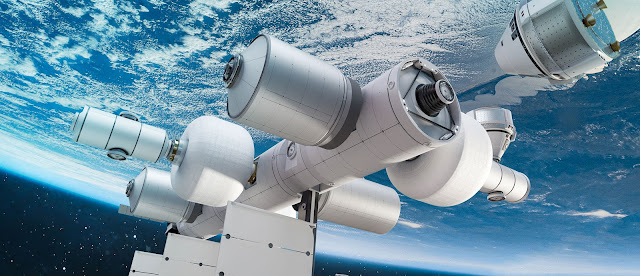Jeff Bezos’ Blue Origin unveiled Monday its plan for a private space station called “Orbital Reef”, which it will build in partnership with multiple space companies and expects to deploy between 2025 and 2030.
Blue Origin describes the Orbital Reef station, which would be habitable for up to 10 people, as a “mixed use business park” in space — as well as capable of “exotic hospitality” for space tourists. Orbital Reef is designed to have almost as much habitable volume as the International Space Station.
Blue Origin intends to bid for one of NASA’s expected contracts for the “Commercial LEO Destinations” program, but Bezos’ company is not alone. NASA director of commercial spaceflight Phil McAlister told CNBC last month that the program “received roughly about a dozen proposals” from a variety of companies for contracts.
With NASA planning to retire the International Space Station by the end of the decade, the CLD program represents an effort to turn to private companies for new space stations — with the space agency expecting to save more than $1 billion annually as a result.
Michael Sheetz
Exciting times for space exploration! I feel that this step in humanity’s progress to space has been long overdue, and human presence in space has stagnated since the early excitement of the Apollo program. It would be great to see more permanent habitation in space stations, along with the technological developments that could be derived from overcoming these challenges.

Blue Origin
This is exciting for us because this project does not duplicate the immensely successful and enduring ISS, but rather goes a step further to fulfill a unique position in low Earth orbit where it can serve a diverse array of companies and host non-specialist crews, said John Mulholland, Boeing VP and program manager for the International Space Station.It calls for the same kind of expertise we used to first design and then build the International Space Station and the same skills we employ every day to operate, maintain and sustain the ISS.
My pessimistic side though is acutely aware that neither Blue Origin nor Boeing had a successful launch to orbit yet, so this timeline may get easily derailed. With SpaceX busily pumping thousands of satellites into orbit, and other companies rushing to follow, low-Earth orbit may become a dangerous minefield of debris, where a large human habitat would be in constant threat of collisions, making continuous living in space a risky project.
Post a Comment